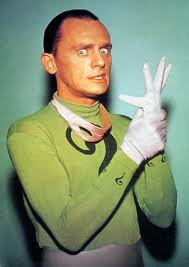Learn a new word: The Illusion of Truth
Repeating something over and over and over again doesn't make it the truth.
That seems like a pretty easy statement to understand, and with which to agree. I mean we all get that right? It doesn't matter what the statement is, or who is saying it again and again, the act of repeating it so many times doesn't impact the fundamental nature of truth. I think we all learned that back in grade school.
But here's the tricky part, even though we know, or think we know that repeating something doesn't make it the truth, or at least closer to the truth, we often are easily deceived.
And that brings us to today's 'Learn a new word' submission, especially interesting and relevant with Election Day in the USA bearing down upon us in then next week or so.
Today's word is 'The Illusion of Truth'. Definition from our pals at Wikipedia:
The illusory truth effect (also known as the truth effect or the illusion-of-truth effect) is the tendency to believe information to be correct after repeated exposure. This phenomenon was first discovered in 1977 at Villanova University and Temple University.
This illusion of truth effect, which has been known for a while, was recently repeated in a study titled 'Knowledge does not protect against illusory truth' published in 2015 in the Journal of Experimental Psychology.
In that study, 40 participants were asked to rate how true a statement was on a six-point scale, and in the second, a different set of 40 participants were asked to simply state whether a statement was true or false. In both cases, repetition made the statement more likely to be categorized as true. This was the case even for statements that contradict well-known facts, such as, “Barcelona is the capital of Spain,” (when in fact, Madrid is Spain's capital).
Why were the participants in the study, and the rest of us too, more prone to believe a statement was true if we had heard it repeated over and over? According to the researchers, it is because trying to figure out whether new information is true is kind of hard, and requires more brain processing power than just simply accepting it.
From the above mentioned study's summary:
Research on the illusory truth effect demonstrates that repeated statements are easier to process, and subsequently perceived to be more truthful, than new statements. Contrary to prior suppositions, illusory truth effects occurred even when participants knew better. Participants demonstrated knowledge neglect, or the failure to rely on stored knowledge, in the face of fluent processing experiences.
And this from the conclusion:
Inferring truth from fluency often proves to be an accurate and cognitively inexpensive strategy, making it reasonable that people sometimes apply this heuristic without searching for knowledge.
Thinking about things is hard. It takes energy. Even doing simple fact-checking might be a bridge too far in many situations. But 'going along' with something largely because we have heard it many times before is always easier, and often makes sense and is a sound and harmless strategy.
Except when it's not.
So that's the trick then. To know when to trust the process if you will and when to do your own research and make your own conclusions. Gosh, that sounds like work.
But be aware that we all are more susceptible to the illusion of truth effect than we may think.
Happy Halloween!

 Steve
Steve

